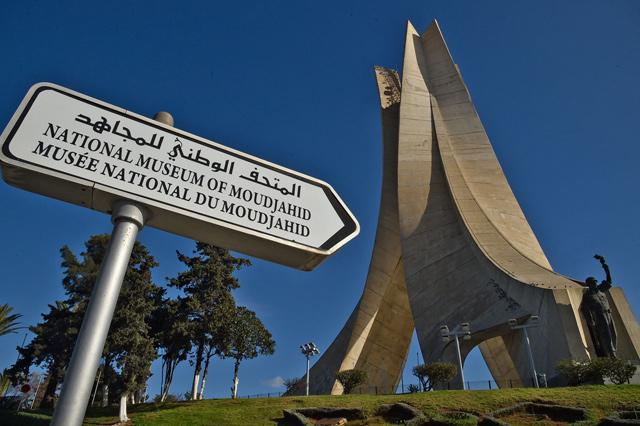- International News
- Mon-2021-05-10 | 07:09 pm

Algeria on Saturday honoured thousands killed by French forces in 1945, as the North African country waits for Paris to apologise for its colonial-era crimes.
Pro-independence protests broke out after a rally on May 8, 1945 marking the allied victory over Nazi Germany.
The rioting triggered two weeks of bloody repression in which French troops massacred thousands of mostly unarmed Muslim civilians, a key chapter in Algeria’s long independence struggle.
On Saturday, thousands of people took part in a march of remembrance following the same route through the northeastern city of Setif as the May 8 rally 76 years ago, official media reported.
Led by scouts, participants laid a wreath at a monument to Bouzid Saal, a 22-year-old man shot dead by a French policeman in 1945 for refusing to lower his Algerian flag — the first casualty of the violence.
The crackdown led by French General Raymond Duval left as many as 45,000 dead, according to Algerian official figures.
French historians put the toll at up to 20,000, including 86 European civilians and 16 soldiers killed in revenge attacks.
The killings had a transformative impact on the nascent anti-colonial movement, setting the scene for a full-blown independence war nine years later that finally led to independence in 1962.
Algerian officials have continued to call for a full apology from France for its colonial-era policies, and President Abdelmadjid Tebboune has described the 1945 killings as "crimes against humanity”.
Government spokesman Ammar Belhimer repeated that demand on Saturday, calling for "the official, definitive and comprehensive recognition by France of its crimes [along with] repentance and fair compensation”.
He also called for help dealing with the toxic waste left behind by 17 nuclear tests France carried out in the Algerian desert in the 1960s.
Fortnight of retribution
The summer of 1945 saw French forces carry out a 15-day campaign of violence around Setif, 300 kilometres east of Algiers.
French authorities, which had occupied and colonised the North African country since 1830, imposed martial law and indiscriminately massacred women, children and the elderly.
Nationalist leaders were detained on pure suspicion, and villages suspected of harbouring separatists were strafed by the air force and set ablaze.
Some 44 villages were destroyed.
Executions continued until November 1945, and some 4,000 people were arrested.
"I have secured you peace for 10 years,” General Duval warned the colonial government in a letter.
"If France does nothing, it will all happen again, only next time it will be worse and may well be irreparable.”
Still sensitive, decades on
Setif remains a highly sensitive episode for Algerians as well as for some in France.
Paris only officially recognised the killings in 2005 when the French ambassador in Algiers called the massacres "an inexcusable tragedy”.
France has since made moves to recognise other crimes committed during its 132-year occupation of Algeria.
In March, President Emmanuel Macron admitted "in the name of France” that lawyer and independence figure Ali Boumendjel had been detained, tortured and killed by French forces who then covered up his death as a suicide.
Last year, Macron tasked French historian Benjamin Stora to assess how France has dealt with its colonial legacy, and urged officials to accelerate the opening of French archives on the Algerian war.
Released in January, the Stora report made several recommendations, including the creation of a "memory and truth commission” to hear testimony from those who suffered during the war.
It did not, however, suggest a formal state apology.
Macron has offered neither "repentance nor apologies” but rather "symbolic acts” of reconciliation.
Algeria did however welcome Macron’s admission of French responsibility for Boumendjel’s death













